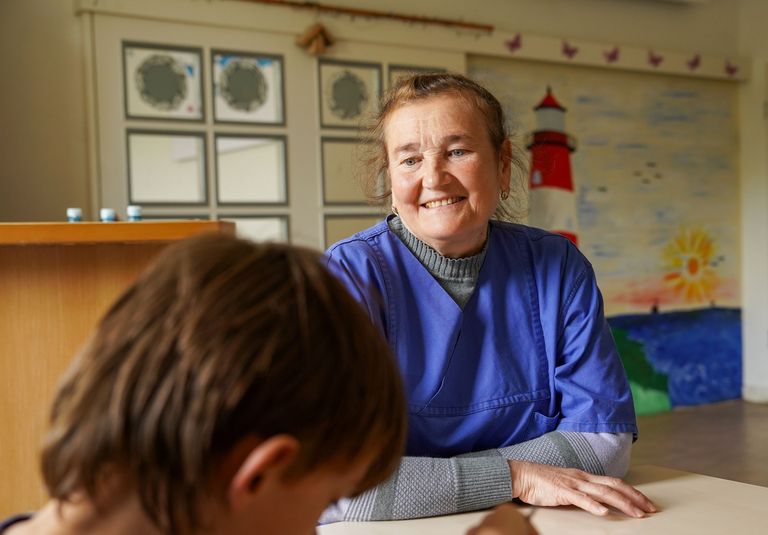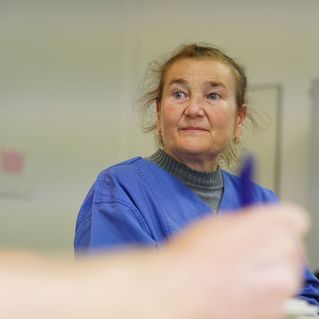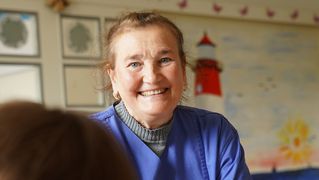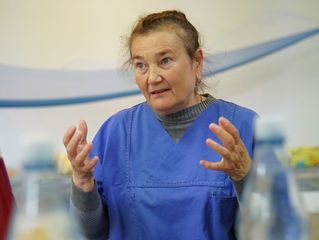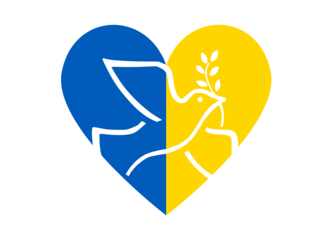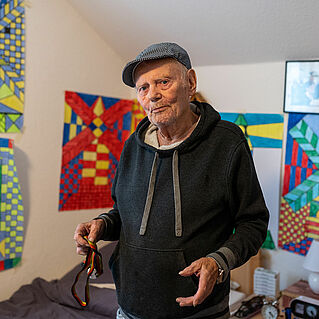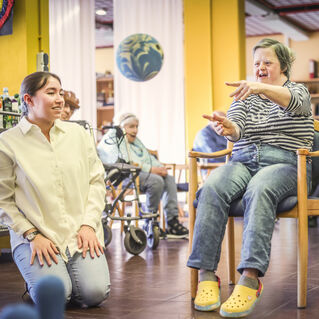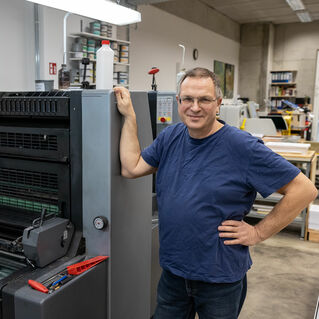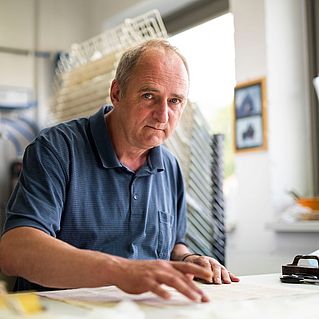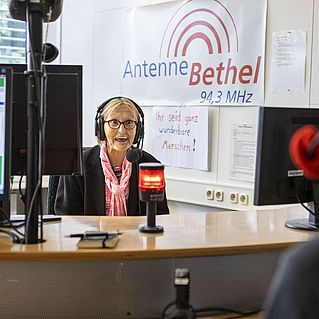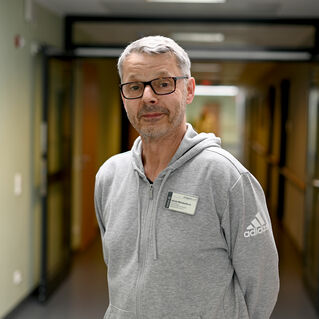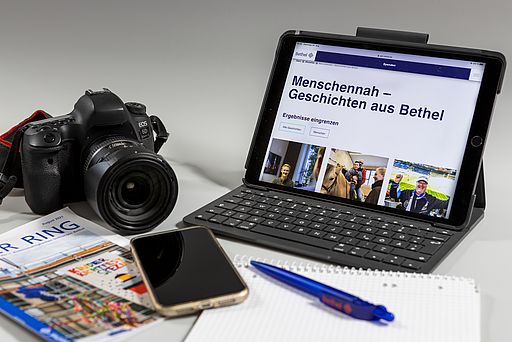Olga Fastovez worked in Ukraine in an institution for seriously ill children and young people. When the war began there, they fled together. Here she tells her story.
My name is Olga Fastovez, I am 64 years old. Shortly after the war began, I fled my Ukrainian hometown of Bila Zerkwa in March 2022 with a group of more than 30 children and young people with severe disabilities and other carers. Bila Zerkwa means White Church, has around 200,000 inhabitants and is located around 70 kilometres south of Kiev. We have been living together in Haus Mamre in Bielefeld-Bethel for a year and a half now.
I didn't believe that this war could happen. When I saw a rocket for the first time, I thought it looked like a car flying in the sky with its headlights switched on. The facility for seriously ill children and young people where I worked in Bila Zerkwa is located between a military barracks and an airport and is therefore in the sights of the Russian attackers. It quickly became clear that we had to get away from there.
